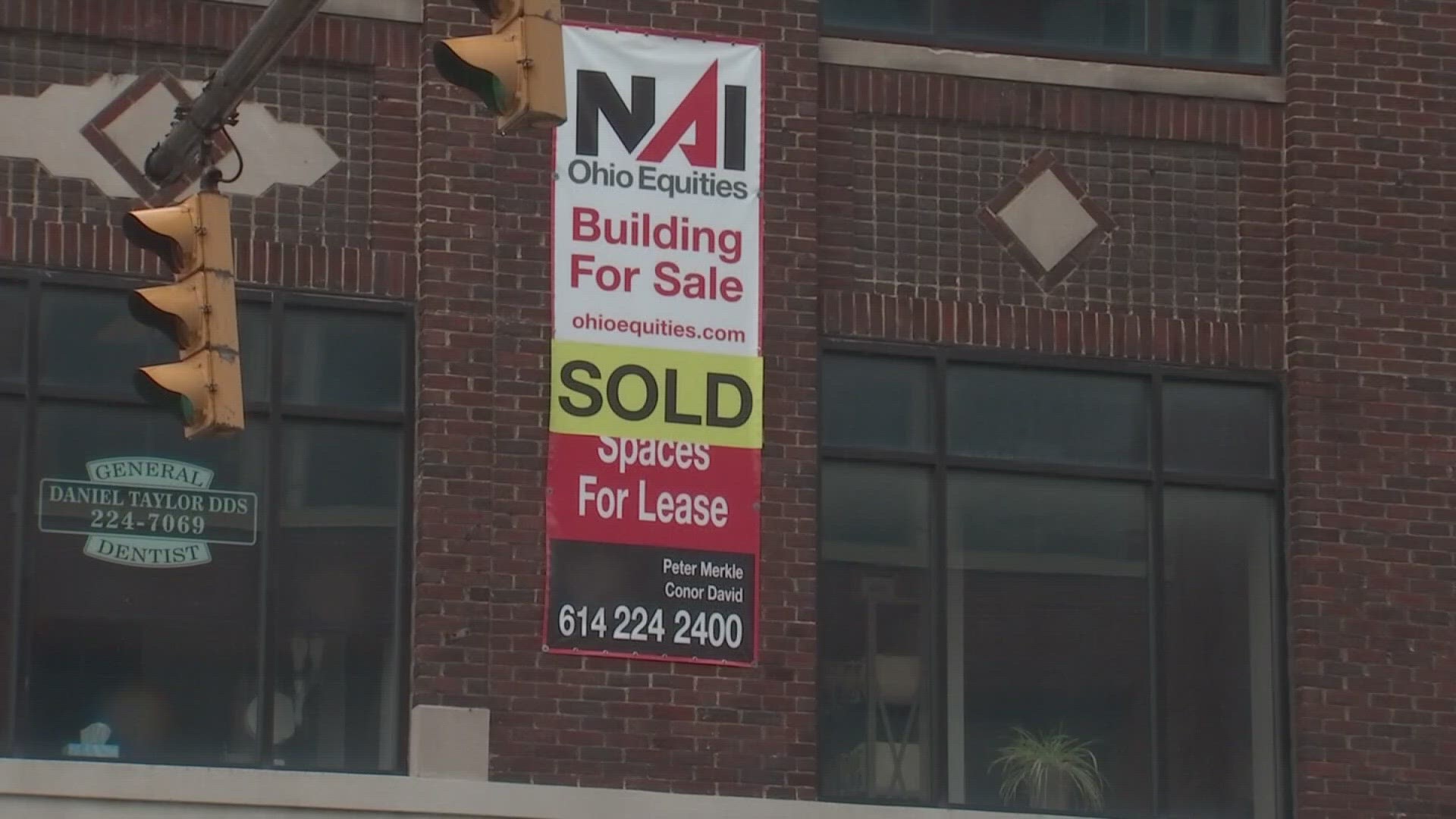COLUMBUS, Ohio — The amount of office space available for lease is at record highs across the country, including in Columbus.
Nationally, the vacancy rate is about 20%. Columbus is higher than that.
"Today we are sitting at about 26.7% so almost double the vacancy post-COVID," said John Boll of Cushman & Wakefield.
The vacancy rate in Columbus was 14% back in 2019.
In the central business district of Columbus, Boll says it’s not much better.
“It was sitting at 13.4% pre-pandemic. It’s about 23.3% now,” he said.
In comparison, Cincinnati’s office vacancy rate currently sits at 24.2% and Cleveland's is at 21.4%
What’s driving the increase?
“We are seeing a higher vacancy rate because of the work-from-home situation,” says Scott McComb, CEO of Heartland Bank.
Experts who spoke with 10TV say most of the empty space is what’s called “middle-tier” buildings. They are described as older buildings that don’t have the modern amenities as the newer buildings do.
The "middle-tier" buildings that experts say will need to either be remodeled or repurposed to attract new tenants.
“We are really talking about the middle tier [buildings], which is about 40 to 45% in Columbus. They are going to have a decision to make,” said Brain Douglas of Cushman & Wakefield.
While Columbus is experiencing higher-than-average office vacancies, experts say they aren’t sounding the alarm bells — partly because, unlike larger cities like New York, Los Angeles or Boston, Columbus remains a less expensive alternative to high rents in major cities.
Additionally, the city doesn’t have the major price swings that other larger cities have.
“Our property values have never skyrocketed like the West Coast, South or East Coast have,” said Douglas.
When the owners of the Continental Plaza office tower at 180 East Broad Street were two months delinquent on a mortgage back in February, some wondered about the health of downtown Columbus office spaces and whether local banks could be in danger of collapse if mortgages on other office buildings go into default.
“I don’t think it’s going to be a big issue here,” McComb said.
He says vacant office buildings don’t always mean landlords aren’t getting paid.
“A lot of the time, the vacancy is there but the lease is still in effect. Let's say a company moved out and downsized they are still liable for that lease so that means there is still cash flow coming to the property,” McComb said.
While Columbus is experiencing higher office vacancy rates at the moment, experts remain confident that because of the growth of the area, they don’t see it lasting.
“I think there are a lot of dynamics in Columbus that we are better positioned than other cities because of our growth. I think there is an assumption when you hear the nationals numbers that are in those ranges of 30 to 40%, we don’t see Columbus getting there because we do have job growth,” Boll said.
Boll added he wouldn’t be surprised that Intel suppliers will bring new tenants to the downtown as the semiconductor giant prepares to open in late 2025 or early 2026.

